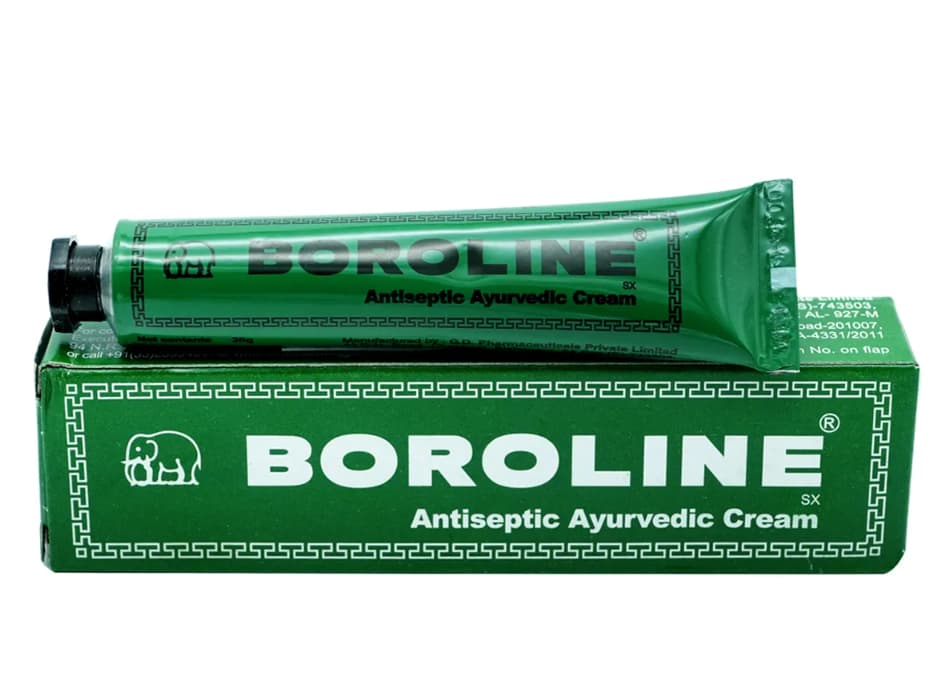The fear of catching diseases from public toilet seats is very common. When it comes to notoriously contagious infections like genital herpes specifically, could that actually pose a real risk?
Can herpes spread simply by sitting on an infected toilet seat recently vacated by a stranger? Despite the public’s prevailing concerns over toilet hygiene, it turns out that contracting herpes requires much closer, direct contact.
Can You Develop Genital Herpes From a Toilet Seat?

Read on to understand exactly why toilet seats present negligible danger for transmission of the herpes virus.
What Is Herpes?
Herpes refers to a group of viral infections caused by the herpes simplex virus (HSV). There are two main types:
- HSV Type 1 (HSV-1) – Also called oral herpes. It mainly causes blisters or cold sores around the mouth and lips. But it can spread to cause genital herpes through oral sex.
- HSV Type 2 (HSV-2) – Also known as genital herpes. It primarily causes sores in the genital area and anus. But it too can spread to the mouth through oral sex.
Once infected with either type, the herpes virus stays in your body for life. Symptoms may be mild or severe. They can disappear completely for years too. But the virus remains dormant and can reactivate any time you become run down. This causes recurrent outbreaks.
Herpes is very common – the CDC estimates that 1 in 6 Americans aged 14-49 have genital herpes. But many don’t realize they’re infected because symptoms can be absent, go unnoticed, or be mistaken for other conditions.
How Herpes Spread?
Herpes doesn’t spread easily between inanimate objects or surfaces. Transmission typically requires direct skin-to-skin contact.
The herpes virus spreads via:
- Sex – Vaginal, anal, and oral sex are high-risk activities if one partner has genital herpes. Even with condom use, it can spread via uncovered skin.
- Kissing – The herpes virus can pass through saliva.
- Skin contact – Touching open herpes blisters or a partner’s infected area allows virus transmission through tiny breaks in your skin. This risk increases if you have abrasions, cuts, eczema or other skin conditions.
Mother-to-child transmission also occurs if the mother has genital herpes during vaginal childbirth.
But objects like toilet seats, towels, clothing, eating utensils, or sex toys only pose a negligible risk, if any. The virus likely won’t survive long enough outside the body or possess enough strength to penetrate skin cells.
Herpes Transmission Risks:
| High-Risk Activities | Low or No-Risk Activities |
|---|---|
| – Vaginal/anal sex | – Sharing towels |
| – Oral sex | – Using the same eating utensils |
| – Kissing | – Sharing clothing |
| – Skin-to-skin genital contact | – Using same sex toys |
| – Toilet seats |
Can You Develop Genital Herpes From a Toilet Seat?
It’s highly unlikely. Research shows herpes struggles to survive long on environmental surfaces like toilet seats. Plus it’s an extremely fragile virus easily killed by drying out, heat, soap, or disinfectants.
To cause infection, enough viral particles must enter a break in your skin or mucous membranes. Simply sitting on an infected toilet seat cannot transfer the virus deeply or concentrate enough into tissue cells.
So while germs like E. coli might contaminate seats from urine splashes, rest assured herpes lives too shortly outside of the body. Using public toilets or swimming pools is not a valid herpes risk.
To stay safe from all toilet germs though:
- Wipe seats before use
- Don’t sit directly on seats without clothing
- Wash hands properly after
If you use good hygiene and avoid sex with infected people, your herpes infection risk stays negligible – even from toilet seats!
How Can You Protect Yourself from Getting Infected with Herpes?
Use common sense hygiene and make informed sexual choices. Smart precautions for avoiding herpes include:
- 1. Know Your Partner’s Status
Many with herpes show no symptoms, so ask new partners if they’ve had STI testing. Avoid sex if unsure or before both getting screened.
- 2. Use Protection
Condoms significantly reduce – but don’t fully prevent – contact with genital skin and fluids during sex. Also use dental dams for oral sex.
- 3. Ask About Cold Sores
Even mouth ulcers can spread herpes during oral sex. Avoid the activity if your partner currently has cold sores.
- 4. Wash Hands Frequently
Washing hands after toilet use and before touching mucous membranes protects from numerous illnesses.
- 5. Limit Partners
Having multiple partners raises infection exposure. Stick to longer-term monogamous relationships where possible.
- 6. Avoid Sex During Outbreaks
Periodically abstaining from sex reduces the risk you’ll spread herpes during viral reactivations.
- 7. Consider Suppressive Therapy
Daily antiviral medication for herpes can lower transmission risk by reducing viral load.
Top 5 Tips to Clean Toilet Seat When You Have Herpes
While toilet seats don’t spread herpes, follow basic hygiene to avoid transferring germs between surfaces.
- Use Disposable Toilet Seat Covers
Place paper liners over public toilet rims before sitting down. Discard after use.
- Carry Disinfecting Wipes When Out
Keep individually packed antiseptic wipes with you. Thoroughly wipe toilet seats first if seat covers are unavailable.
- Use Your Sleeve or Paper Towel to Flush
Avoid touching flush handles directly to minimize indirect hand contamination.
- Always Wash your Hands After Using the Toilet
Scrub your hands properly with soap to remove germs, especially before touching food or your face.
- Shower ASAP Once Home
Take a thorough shower washing all areas that made toilet contact, including buttocks and thighs.
These easy precautions minimize risk even if herpes virus traces contaminate a toilet surface.
FAQs on Can You Develop Genital Herpes From a Toilet Seat?
Still confused about herpes and toilet seats? Here are answers to common questions:
- 1. Is herpes airborne – can you catch it from toilet mist or vapors?
No. Herpes spreads through direct skin-to-skin sexual contact, not airborne transmission.
- 2. Do toilet seats commonly carry infectious herpes?
Unlikely. Herpes struggles to live more than a few hours on hard surfaces without moisture or body warmth needed for survival.
- 3. Can herpes spread by touching a shopping cart handle after an infected person?
Extremely low chance since the virus quickly dies without a host. Traces remaining after hours probably won’t infect you. But wash hands later regardless.
- 4. Is it possible to catch herpes if you sit on still-warm public toilet seats after an infected stranger uses them?
While the virus may survive minutes longer on still-warm seats, direct skin penetration before drying and cooling remains very improbable.
- 5. Can herpes spread by using infected public swimming pools or water park rides?
No. Properly chlorinated water kills herpes virus instantly while contact with skin alone cannot transmit infection without sexual fluids.
- 6. Do toilet seats with visible urine spots pose a greater herpes risk?
Urine doesn’t harbor infectious herpes, so wet patches indicate no extra risk beyond the presence of other germs best avoided.
- 7. Does the herpes virus stick around on toilet paper – could infected strangers indirectly contaminate surfaces by touching the paper they used?
Unlikely paper contact poses a transmission risk as herpes survives extremely briefly on porous surfaces quickly rendered dry and inhospitable.
- 8. How long can active herpes virus persist on toilet seats or bathroom surfaces?
Active virus particles likely die within minutes once drying out and separated from the warm moist environment of the human body. Virus concentration also diminishes rapidly.
- 9. Is it possible to self-inoculate your own genitals or another body part with herpes by touching a toilet seat an hour after you used it while experiencing an outbreak?
Extremely slim chance. Upon flushing herpes viral particles likely perished or exist too sparsely to self-transmit infection within an hour.
- 10. Do specialty toilet seat covers like SitOrSquat offer better herpes protection?
All seat covers protect against exposure to urine and grosser germs. But herpes specifically poses a negligible risk with or without covers.
More Similar Guides on Herpes:
- Can I Still Deliver Vaginally If I Get Genital Herpes While Pregnant
- Can I Go in a Hot Tub with Herpes Outbreak
- How Long to Wait to Shave After Herpes Outbreak
Resources:
Conclusion:
Genital herpes is a lifelong condition passed only through direct sexual skin-to-skin contact and exchange of fluids. Sitting on infected public toilet seats or other environmental surfaces essentially carries no chance of viral transmission.
By understanding true risks, using appropriate precautions during sex, and following basic hygiene, you can readily protect yourself from herpes infection.
Avoiding contaminated toilet seats may ward off more prevalent germs, but carries no role specifically in preventing genital herpes itself.



